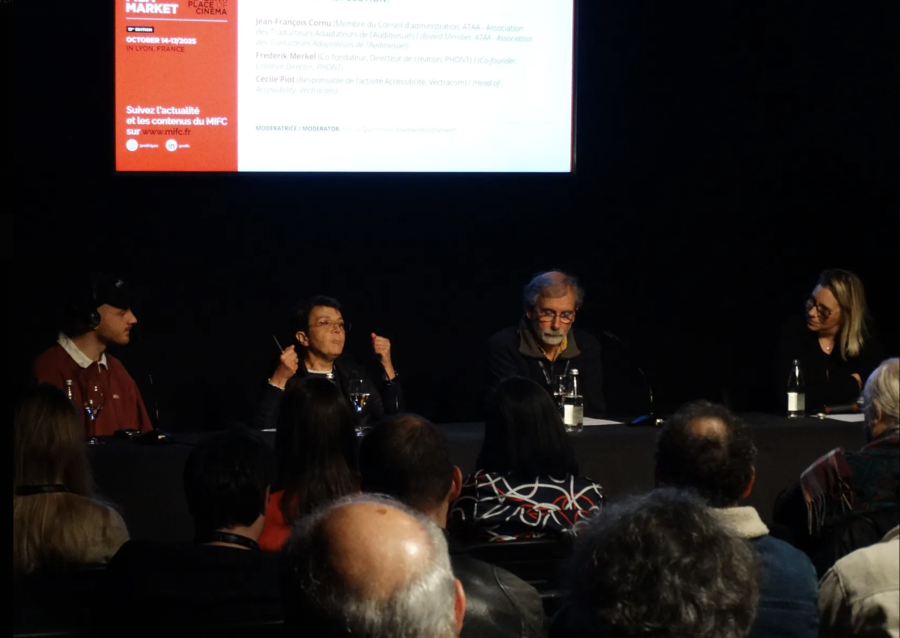AI for subtitling and dubbing heritage films: evolution or revolution?
Continuing the discussions launched in 2023 on the use of Artificial Intelligence (AI) in heritage cinema, on Thursday, October 17, 2025, the International Classic Film Market held a round table discussion on the role of AI in subtitling and dubbing heritage films. The discussion was moderated by journalist Perrine Quennesson and brought together Jean-François Cornu (ATAA), Frederik Merkel (Phont), and Cécile Piot (Vectracom).

The role of AI in the heritage industry
Artificial intelligence is a technical advance similar to the innovations that the film industry has experienced since the early days of cinema more than 100 years ago, so it has its place in the industry, but its application must be at the service of humans, not the other way around.
- False time savings: The use of AI requires human quality control, which takes more time, as AI-generated transcripts are often inaccurate.
- A tool unsuited to classic cinema: Redubbing old films creates a discrepancy between sound and image quality.
- A tool for greater accessibility? The issue of accessibility is essential to subtitling and audio description, which are areas of the sector affected by AI, particularly with Phont, but the transcripts provided are often of poor quality. Adjustments are already being made to make subtitles more accessible, for example through the use of colors.
- On costs: The quality of subtitling and dubbing comes at a cost that is not found with AI. The ecological costs of using AI must also be taken into account.
Choosing content dubbed and subtitled by AI
In terms of speech, not all content requires the use of artificial intelligence, even if creating distinctions introduces a hierarchy between content.
- Do not use AI in all cases: AI subtitling depends on the content; the use of technology is not the same for reality TV shows as it is for heritage films.
- Creation of a hierarchy: We would see a hierarchy of content accentuated by the widespread use of AI, with some content dubbed and subtitled by AI and other content that must not be touched.
A framework must be defined
Adapting to the use of artificial intelligence is possible, but it must be done within a specific framework that protects copyright and intellectual property.
- Ineffective safeguards: The 2019 law on text and data mining (TDM) is considered unacceptable and the opt-out clause is difficult to enforce, while ARCOM's recommendations do not prevent unconventional agreements from being signed. In 2011, the ATAA signed a charter of practices with the CNC and FICAM, which needs to be updated and enforced.
- National and European aid: Aid is offered to translation and dubbing companies, but is distributed to companies that use AI (e.g., TransPerfect and Arte in six languages).
- An unenforced charter of practices: The texts on the translation of heritage films need to be updated, an effort that must be made jointly by the main broadcasters, guided by a commitment to quality and the need to apply the charter of practices signed in 2011.
- Rethinking the economy: Industries must reflect on their financing and the quality they wish to offer with their content in order to make appropriate choices regarding the use of AI.




